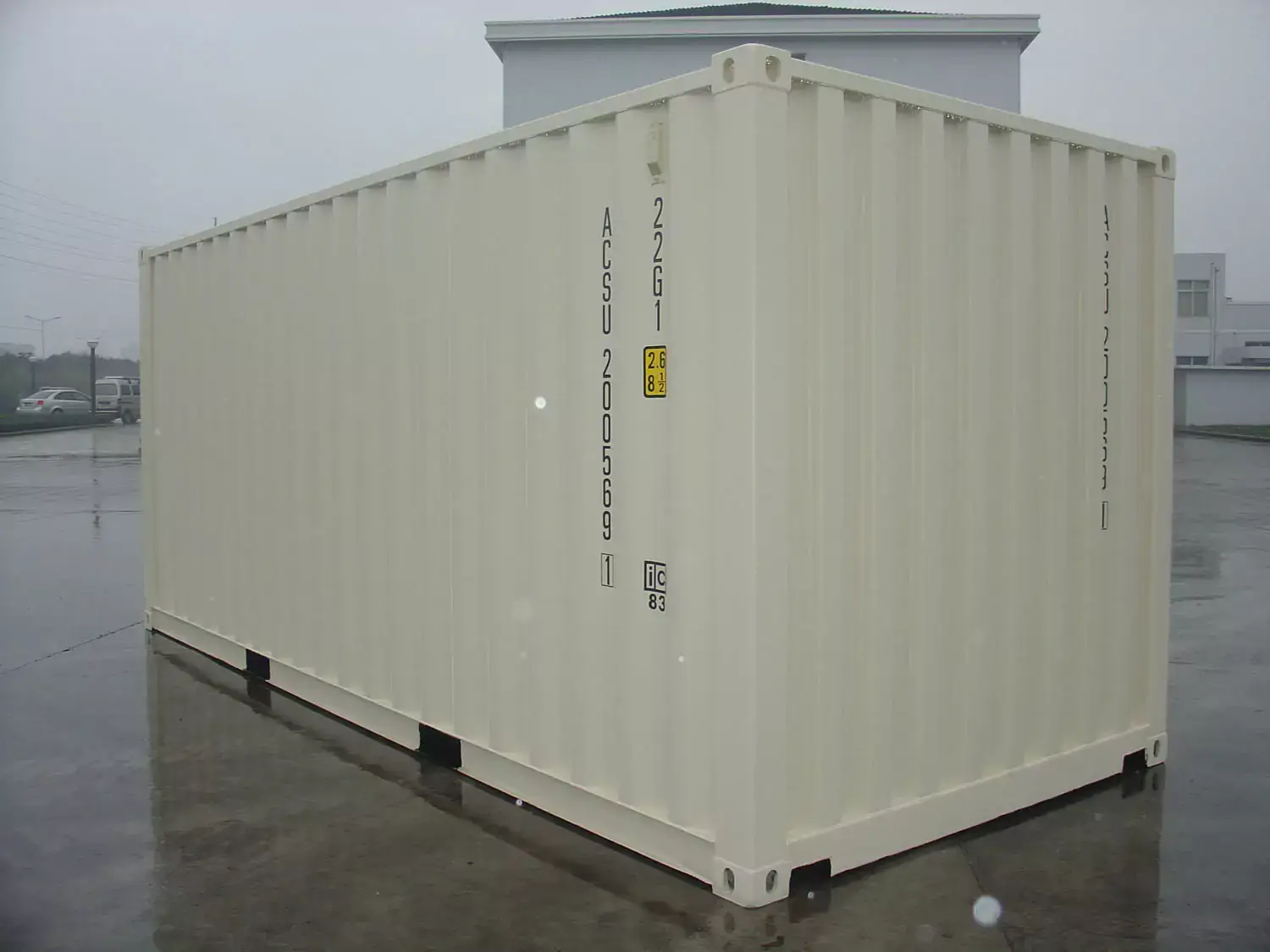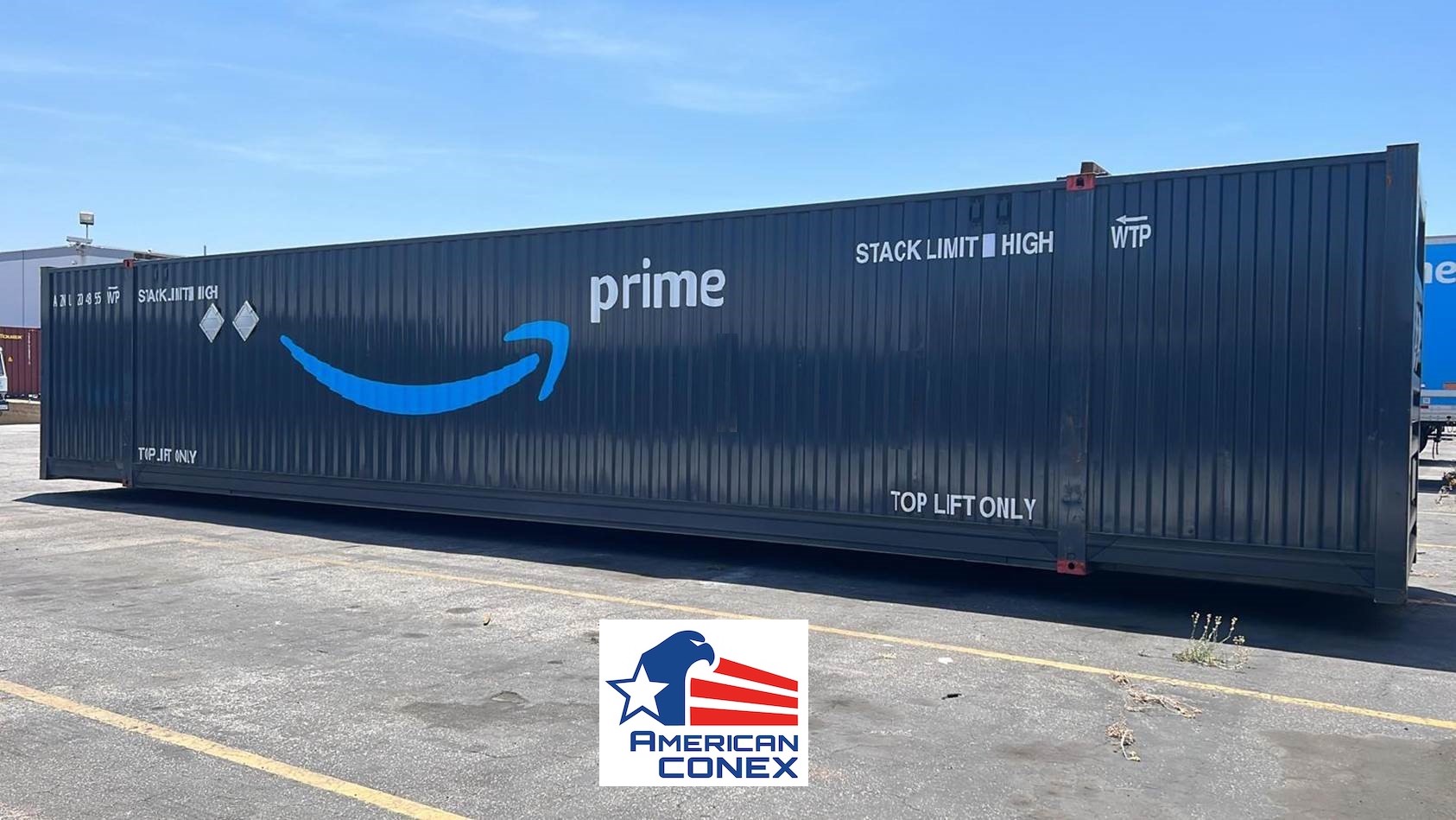Why You Should Lease New Shipping Container 40 x 8 x 9.6 for Your Pop-Up Café
Why You Should Lease New Shipping Container 40 x 8 x 9.6 for Your Pop-Up Café
Blog Article
The Ultimate Guide to Choosing the Right Shipping Container for Your Demands
When it involves choosing the best shipping container, recognizing your specific needs is important. You'll intend to consider variables like dimension, type, and product to ensure you make the most effective selection. From typical dimensions to specialized options, there's a lot to explore. Plus, budgeting for both the container and any kind of adjustments can make a large distinction. Allow's damage down the vital elements to assist you find the ideal suitable for your requirements.
Recognizing Shipping Container Sizes
When you're choosing a shipping container, recognizing the different dimensions readily available is vital for making the ideal decision. Shipping containers typically come in typical sizes of 20 and 40 feet, but you'll likewise discover various other measurements. Understanding the size you need relies on what you prepare to shop or transport.If you're relocating smaller things, a 20-foot container could be optimal, while bigger deliveries typically require a 40-foot container. Bear in mind that the height can likewise vary; high cube containers use extra upright area, which can be beneficial for taller goods - Lease New Shipping Container 40' x 8' x 9’6".Before determining, gauge your freight, and take into consideration just how much area you'll require for filling and discharging. Constantly consider possible future demands-- choosing for a slightly larger container might save you hassle down the line. Eventually, choosing the right size will certainly boost effectiveness and ensure your items are secure during transit
Kinds of Shipping Containers Available
There are a number of types of shipping containers offered, each created for details objectives and freight demands. The basic completely dry container is functional, ideal for basic cargo. If you're delivering perishable items, consider a cooled container, which keeps a controlled temperature level. For large things, high dice containers provide additional height, suiting taller loads.If you require to carry heavy equipment or equipment, level shelf containers provide a strong base without wall surfaces. Meanwhile, open-top containers allow for simple loading of high cargo, with a removable tarpaulin covering for defense. If you're looking for versatility, take into consideration a collapsible container that can be quickly kept when not in use.Lastly, specialized containers like tank containers are used for liquids, while vented containers are designed for bulk freight that needs ventilation. Knowing your freight kind will aid you pick the appropriate container to fulfill your delivery needs effectively.
Product Considerations for Toughness
When picking a shipping container, the material plays a vital function in its resilience. You'll intend to consider the benefits of steel versus light weight aluminum, particularly pertaining to rust resistance. Understanding these variables can aid you make a much more educated selection for your delivery needs.
Steel vs. Aluminum Containers
Just how do you select in between steel and aluminum containers for your shipping requires? Beginning by considering resilience. Steel containers are robust and deal excellent toughness, making them ideal for hefty loads and severe problems. They stand up to damages from impacts and are frequently cheaper, which can be a major element for budget-conscious buyers.On the various other hand, light weight aluminum containers are lightweight, which can save you on delivery prices. They're less complicated to navigate and are a great selection if you need to move goods regularly. Light weight aluminum is usually more costly and less durable than steel. Evaluate your specific requirements very carefully, consisting of weight, expense, and the kind of freight you'll be delivery, to make the appropriate choice for your circumstance.
Rust Resistance Elements
Selecting the appropriate product doesn't simply entail weight and expense; rust resistance plays a substantial function in sturdiness. When choosing a shipping container, take into consideration the setting it'll face. Steel containers, while solid, can rust if not correctly dealt with. Seek options with safety coverings or galvanization to boost their life expectancy. Light weight aluminum, on the various other hand, provides all-natural corrosion resistance, making it ideal for seaside locations or humid problems. It can be a lot more pricey. Furthermore, examine the container's use-- if it'll be exposed to click over here now chemicals or severe climate, focus on products that can withstand these conditions. Investing in a corrosion-resistant container currently can save you from pricey repairs or substitutes down the line. Select sensibly for long-term benefits.
Alterations and Modification Options
Delivering containers aren't simply for carrying products; they can be changed to satisfy your particular requirements via various adjustments and personalization options. You can convert a conventional container right into a comfortable workplace room, a short-term retail shop, or even an individual fitness center. The opportunities are nearly endless.Think concerning adding home windows, insulation, or ventilation to boost comfort. You might additionally think about electric wiring, pipes, or perhaps personalized shelving to enhance capability. If protection's a concern, reinforced locks can offer peace of mind.For visual appeal, you can repaint the container or include an one-of-a-kind style to make it stand out. Don't forget flooring alternatives-- whether you desire long lasting plywood or something a lot more innovative, it can raise the space.Ultimately, tailoring your delivery container to suit your demands can improve use and develop a distinct setting that shows your design.
Examining Your Transport Demands
When it pertains to utilizing your customized delivery container, comprehending your transportation needs is vital. Begin by determining what you'll be delivery-- whether it's heavy equipment, retail products, or personal products. Each kind of freight has various requirements pertaining to dimension, weight, and accessibility.Next, take into consideration the range and mode of transport. Are you delivering locally, nationally, or worldwide? This affects the container's style and functionality. If you're making use of trucks, guarantee your container fits typical measurements for simple loading and unloading.Additionally, think of transportation problems. Will your items need unique security from climate or temperature changes? If so, you may need insulation or ventilation functions in your container.Lastly, assess exactly how frequently you'll be moving products. Constant shipments might need a more resilient and flexible container to meet recurring demands. By attending to these elements, you'll be well-prepared to choose the appropriate delivery container for your demands.
Budgeting for Your Delivery Container
Setting an allocate your shipping container is vital for making sure a smooth investing in procedure. Figure out just how much you can pay for to spend. Costs can differ considerably based on size, condition, and type. New containers generally set you back much more, however utilized ones can provide substantial savings.Next, think about any type of extra costs you may incur, such as transport costs, delivery fees, and alterations. If you intend to customize the container, consider those costs as well. Research study different suppliers to compare prices and discover the most effective bargain that meets your needs.Don' t forget to consist of any kind of licenses or policies that may apply to your purchase and use of the container. By plainly outlining your spending plan, you'll be better prepared to make enlightened decisions, ensuring you obtain the best container without breaking the financial institution.
Maintenance and Take Care Of Longevity
To assure your shipping container lasts for several years, routine upkeep is key. Beginning by examining the exterior for rust, dents, and damage. If you identify any issues, address them right away to stop further damage. Tidy the container periodically, both within and out, to eliminate dust, particles, and moisture that can cause corrosion.Ensure the doors secure properly and lubricate the joints to prevent corrosion and sticking. If you're utilizing the container for storage space, take into consideration including ventilation to reduce humidity and mold growth. For added protection, apply a rust-inhibiting paint or sealer annually.If your container's located in a harsh atmosphere, like seaside locations, you might require to boost upkeep regularity. Watch on the floor covering, also; any kind of indicators of wear should be fixed today. With these straightforward steps, you'll expand the life of your shipping container substantially.
Frequently Asked Concerns
How Do I Find a Reputable Delivery Container Vendor?
To find a reliable delivery container supplier, begin by looking into on the internet testimonials, requesting for suggestions from pals or industry contacts, and contrasting prices. Constantly examine their credentials and warranty they supply top quality containers that satisfy your needs.

Can I Rent a Shipping Container Instead of Buying?
Yes, you can definitely check out this site rent a delivery container rather than buying one. Several suppliers offer rental options, which can save you cash and provide adaptability if you only need it for a brief period.
What Permits Are Required for Container Placement?

Are Shipping Containers Weatherproof and Suitable for Outdoor Storage?
Yes, shipping containers are typically weatherproof, made to hold up against severe problems. Their robust construction maintains your things secure and dry, making them appropriate for exterior storage. Simply guarantee correct air flow to stop dampness build-up inside.
How Do I Deliver a Delivery Container As Soon As Bought?

Report this page